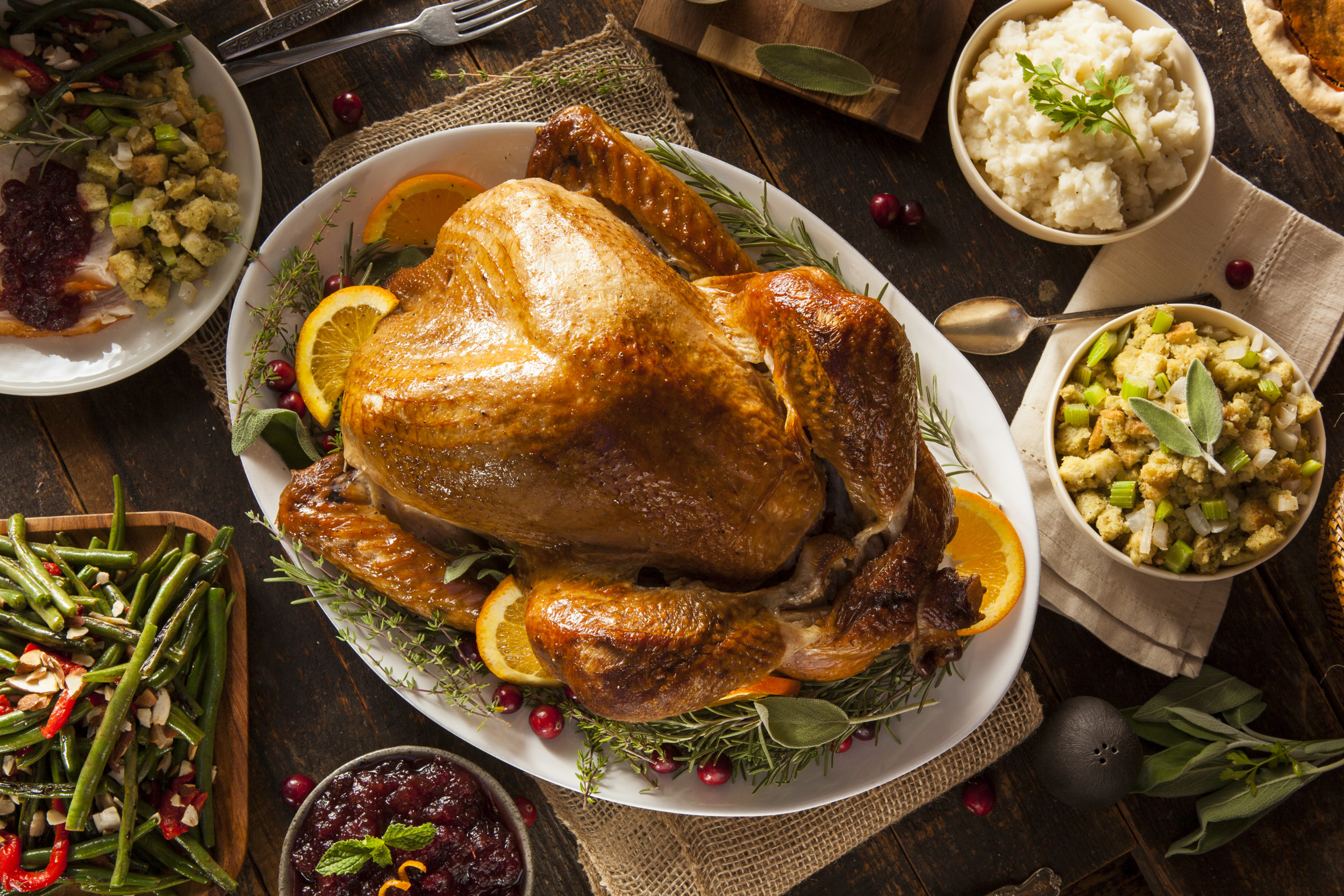
During festivals of feasting, the prospect of weight gain can lead some to skip meals or embark on a cleanse to make up for holiday indulgence—but such strategies may do more harm than good.
A survey by Orlando Health found than nearly two in five Americans worry about how much they eat over the holidays.
Asking a nationally representative sample of 1,019 U.S. adults, the survey found that 25 percent of respondents believe they should skip meals before a holiday gathering, and a third feel they should detox or go on a cleanse after the holidays.
Dietitian Christine Byrne, of Ruby Oak Nutrition, told Newsweek: “It’s understandable that people might want to skip meals or try some kind of ‘detox’ diet during the holidays.
“Lots of celebrations revolve around food, and there’s so much fearmongering about holiday weight gain.
“In reality, though, skipping meals or drastically restricting your food intake in other ways is likely to set you up for a restrict-binge cycle, where eating too little makes your far more likely to go overboard and feel out of control around food when it’s in front of you, like at a holiday party of a celebratory meal.”
Sara Riehm, dietitian at Orlando Health Center for Health Improvement, said in a statement: “Holidays come around once a year, and indulging in a few traditional foods and favorite recipes that might have a little extra sugar or fat is not going to affect your health or derail your healthy habits.
“In fact, I see a lot more anxiety about weight gain than actual weight gain from my patients around the holidays.”
bhofack2/Getty Images
Byrne said that, in her practice, she noticed that many clients with disordered eating habits needed extra support during holiday months, as they may mind themselves slipping into a restrict-binge cycle.
“They’ll try to be ‘good’ for several days by eating low-calorie meals and avoiding certain foods, and then they’ll be really upset and blame a lack of willpower when they go overboard on the holiday dessert table or the appetizers at an office party,” said Byrne.
“After this happens, the temptation is to go back to restricting food in order to ‘make up for’ what they ate, but that actually just keeps the cycle in motion.”
Instead, Byrne recommended going back to regular eating, after eating a lot the previous day.
“Sure, you may be a little bit less hungry, and it’s okay to honor that, but sticking to your normal eating habits over the holidays will actually make you less likely to overeat when your favorite holiday foods are around, because you won’t be so hungry and deprived,” she said.
Riehm said that it was a lot easier to make healthier decisions when not feeling hungry, so she recommended having a light meal that includes protein and fiber before going to a party, so you can make more mindful choices about what you’re eating once there.
She also said that it was okay to help yourself to “that special food you’ve been looking forward to,” but it was a good idea to balance it with more nutritious foods too.
Riehm also specifically warned against going on a detox or cleanse after the holiday period.
“We can’t really detox the body from so-called ‘toxins’ that we’re getting from our food,” she said. “The liver and the kidneys do a great job of removing toxins from the body already, and they don’t really need our help with juices and other marketed supplements.”
Do you have a tip on a food story that Newsweek should be covering? Is there a nutrition concern that’s worrying you? Let us know via science@newsweek.com. We can ask experts for advice, and your story could be featured in Newsweek.
